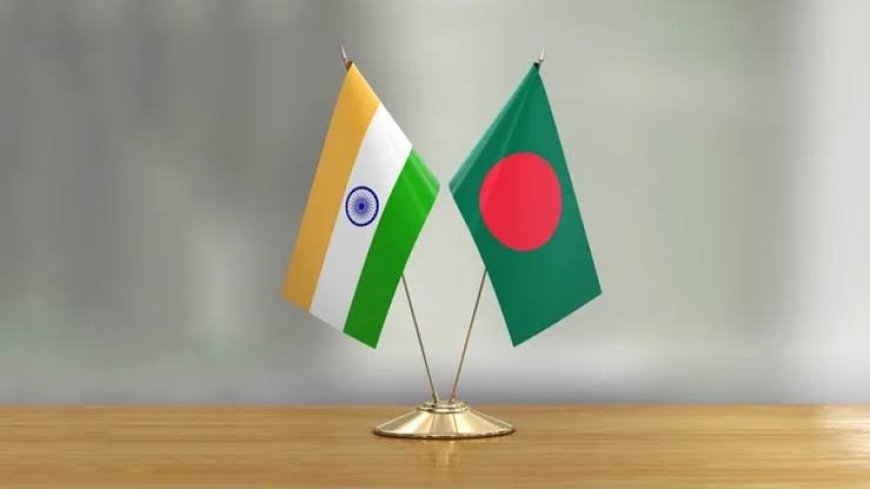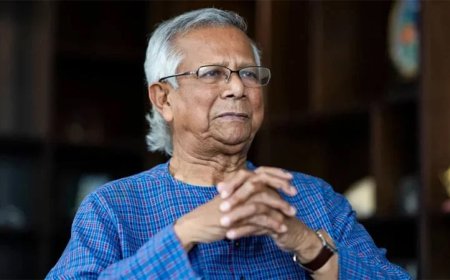Dhaka-Delhi Relations: The Winds of Positive Change Are Blowing
Dhaka-Delhi Relations: The Winds of Positive Change Are Blowing

After a period of escalating tensions amid a changed political landscape since August 5, Bangladesh and India are increasingly demonstrating a commitment to recognizing the importance of stability, mutual trust, and cooperation to tackle shared challenges and ensure greater prosperity for both nations.
The winds of positive change in Dhaka-Delhi relations signal a hopeful turn for the two South Asian neighbors, despite concerns that anti-India sentiment would drive the relationship into further decline.
Recent diplomatic exchanges, including a meeting at the foreign secretary level, reflect a shared resolve to strengthen ties and address areas of disagreement.
On January 1, Foreign Affairs Adviser Md Touhid Hossain emphasized that maintaining strong relations with three key nations—India, China, and the United States—would be a priority in 2025. He pointed out that Dhaka’s relationship with Delhi will evolve beyond single-issue concerns.
However, questions remain about how the Bangladesh-India relationship will unfold this year, especially if Dhaka’s request for the return of former Prime Minister Sheikh Hasina goes unaddressed. Hossain responded by stating that this was one of several issues and that the two countries have many bilateral concerns to manage.
"I believe both issues will progress together. We have numerous areas of mutual interest, and we will continue to work on all these matters simultaneously," said the adviser. Bangladesh is awaiting a response from India regarding Hasina’s extradition request and intends to send a follow-up if no reply is received. India has refrained from providing further comment on the matter.
On January 3, Indian Ministry of External Affairs spokesperson Randhir Jaiswal confirmed that India had received communication from Bangladesh regarding Hasina, but refrained from adding anything further at that time.
During his official visit to Bangladesh on December 9, Indian Foreign Secretary Vikram Misri reiterated India’s desire to build a "positive and constructive" relationship with Bangladesh, based on mutual trust, respect, and consideration for each other’s concerns.
He also emphasized that the people are the primary stakeholders in Bangladesh-India relations, noting that India's development cooperation, trade, connectivity, and capacity-building efforts are aimed at benefiting the people of Bangladesh.
Jaiswal further explained that India’s approach focuses on nurturing ties with Bangladesh, with an emphasis on fostering a "democratic, stable, peaceful, progressive, and inclusive" Bangladesh.
On December 31, Indian High Commissioner Pranay Kumar Verma welcomed Chief Adviser Prof Muhammad Yunus to the High Commission when Dr Yunus visited to pay respects to former Indian Prime Minister Manmohan Singh, who had passed away.
New Delhi's reaction was measured after a Chattogram court rejected the bail petition of Chinmoy Krishna Das Brahmachari, a spokesperson for Bangladesh Sammilito Sanatan Jagran Jote, in a sedition case on January 2. India expressed hope that those arrested would receive a fair trial in Bangladesh, a sentiment expressed by the MEA spokesperson on January 3.
Meanwhile, the reciprocal repatriation of Indian and Bangladeshi fishermen began on January 5, with the process set to conclude on January 6. This reflects ongoing efforts to strengthen cooperation.
In December 2024, Bangladesh received a shipment of 24,690 metric tonnes of parboiled rice from India, marking the first such consignment since the Yunus-led interim government took office.
The exchange of war veterans and participation in each other’s Victory Day celebrations further deepens the bonds between the two countries, providing a platform to celebrate the shared sacrifices of the armed forces of India and Bangladesh during the Liberation War.
These exchanges are seen as a positive move toward advancing the relationship, despite challenges arising from Hasina's political situation and her potential refuge in India.
High Commissioner Verma remains optimistic about Dhaka-Delhi relations, noting that both countries have much to offer each other and stressing that the relationship should be "mutually beneficial." He emphasized the importance of sensitivity to each other’s concerns, interests, and aspirations.
Verma further underscored that there is no slowdown in the relationship, citing the ongoing exchange of communication, high-level visits, and continued issuance of visas. He also highlighted India's commitment to fostering economic opportunities in the region.
Analysts suggest that the future of Bangladesh-India relations in a changing political landscape will depend on a range of factors, including economic interests, regional dynamics, and global challenges such as climate change and security concerns.
The trajectory of the relationship will likely rely on sustained dialogue, respect for sovereignty, and practical cooperation, ensuring a stable and mutually beneficial partnership despite both internal and external challenges.
What's Your Reaction?





















































































